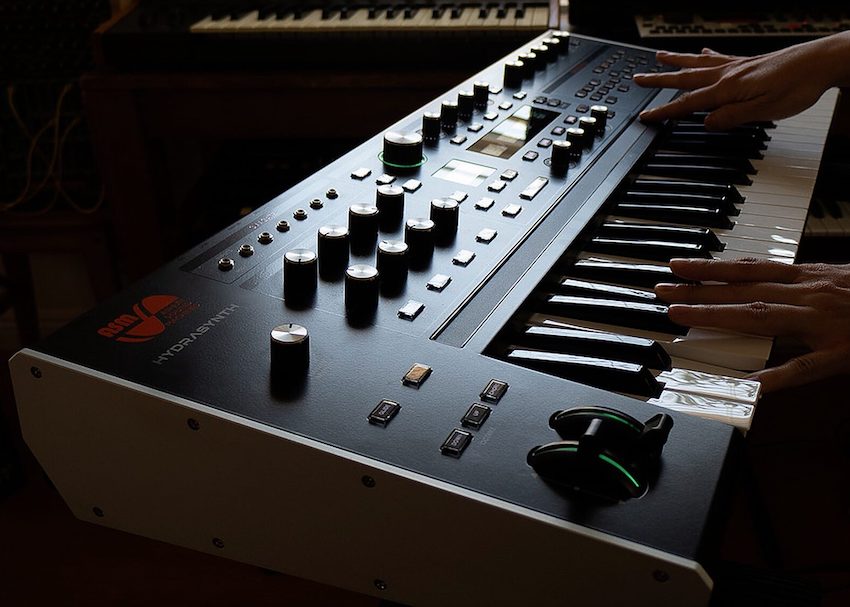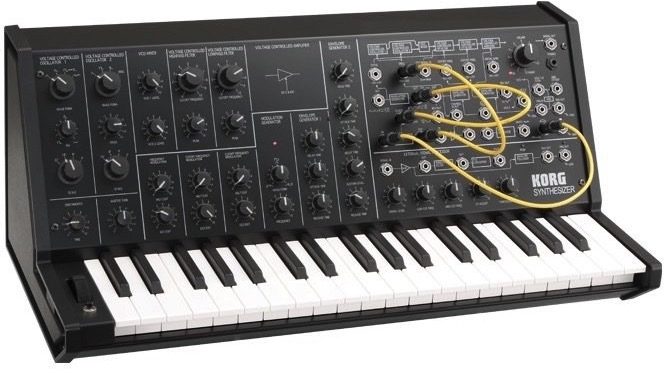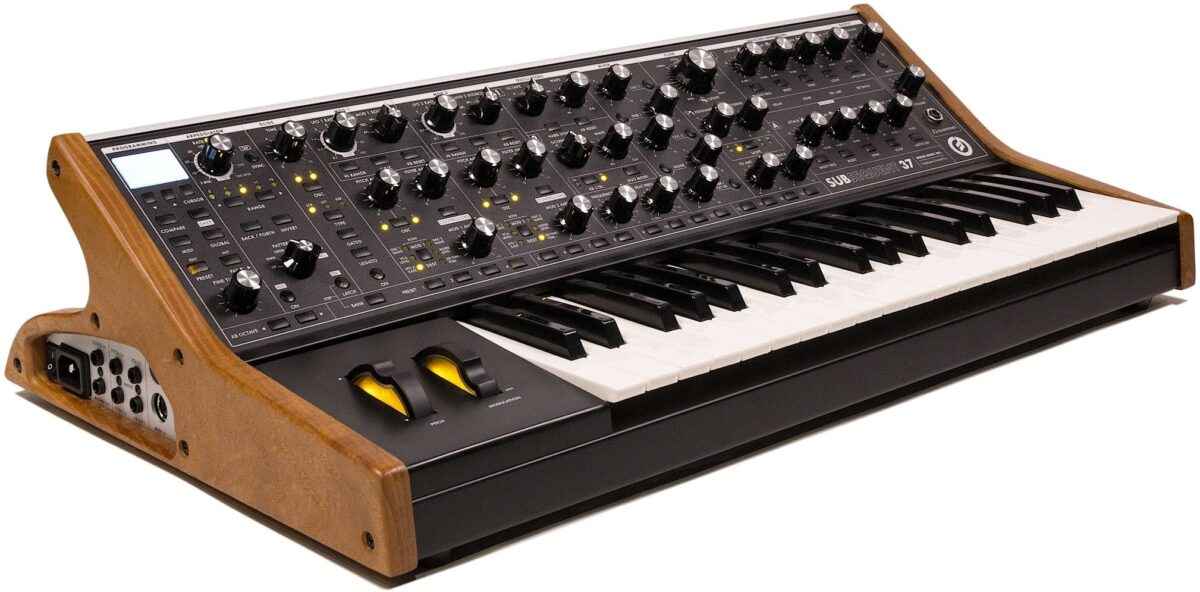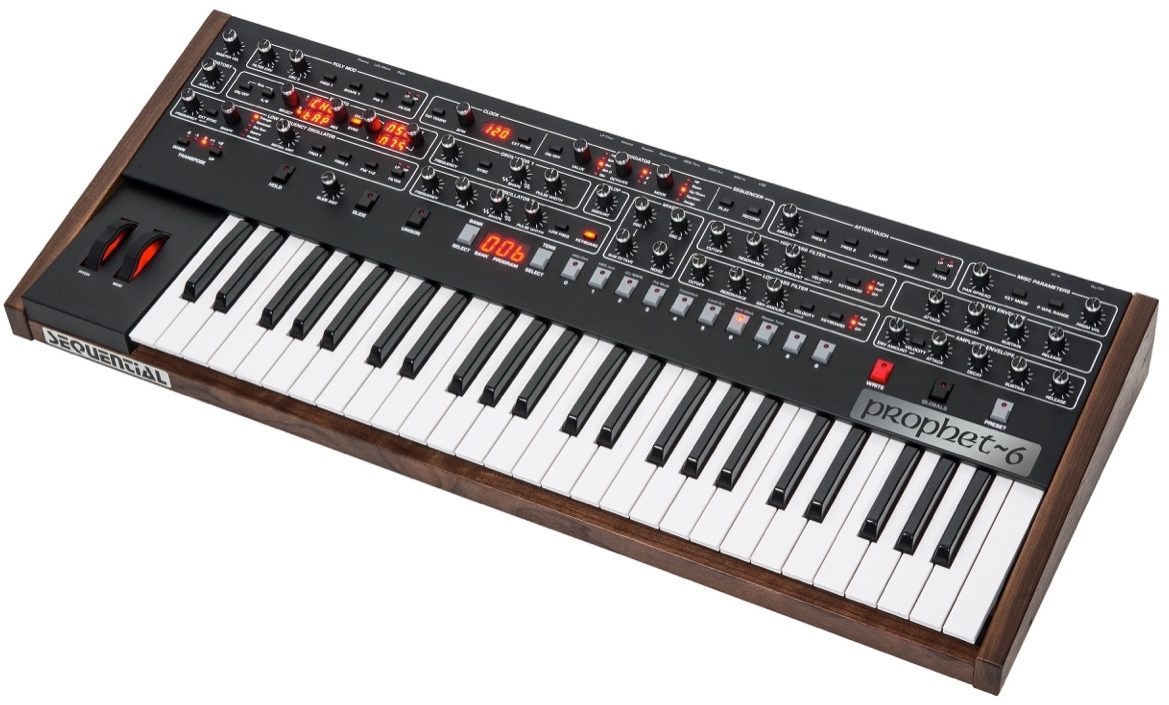Monophonic, polyphonic, paraphonic, what do these confusing and occasionally overlapping terms really mean? There’s no need to be scared of all the jargon — we’re here to give you the lowdown on all that noise!
The components inside synthesizers that generate sound are called oscillators. Synths assign oscillators to different notes depending on what keys you press. The number of notes you can independently control depends on the number of oscillators in the synthesizer and the way the voice architecture is set up.
Polyphony, paraphony, and monophony are terms that describe the different ways that a synth can handle the situation when you play multiple notes simultaneously using a keyboard. Here’s the rundown:
Monophonic
Monophonic synths play only one note at a time. An example of this design is the Korg MS-20.
Note that a monophonic synth can have multiple oscillators, and you may be able to tune them separately. Regardless, they will all be triggered at the same time when you press a key, and you will not be able to play multiple notes independently of each other.
Paraphonic
A paraphonic synth can play multiple notes at a time, but only has one voice architecture — in other words, every played note shares the same VCA envelope. This means that you cannot play one note and then trigger a second note while the first note continues to ring out. If you play a second note then either the first note will trigger again, or it will simply stop/end. Paraphonic synths are often duophonic, meaning you can play two notes at a time. Some examples of duophonic synths include the ARP Odyssey and the Moog Subsequent 37.
Polyphonic
“Polyphonic” refers to synths that can play more than one note at a time, which technically would include paraphonic synths. However, the way it’s commonly used among synthesists, “polyphonic” refers to the ability to play multiple notes with each note having its own voice architecture. Examples include the Sequential Prophet-6 and the ASM Hydrasynth. This usually varies from as few as 3 to as many as 16 separately voiced oscillators.
Those familiar with synth terminology know that these are more “common usage” rather than dictionary definitions, and that it’s possible to dive much deeper into the different types of synthesizer voice architectures, especially in the world of vintage synths. But the above definitions are a good place to start, especially if you’re shopping for a new synth as opposed to scouring the vintage market!






